Most Popular
Evernote review, microsoft onenote review, bear notes review, notion review 2025, google keep notes review 2025, climate change thesis statement examples.
freepik.com

Climate change is an urgent global issue, characterized by rising temperatures, melting glaciers, and extreme weather events. Writing a thesis on this topic requires a clear and concise statement that guides the reader through the significance, focus, and scope of your study. In this piece, we will explore various examples of good and bad thesis statements related to climate change to guide students in crafting compelling research proposals.

Good Examples
Focused Approach: “This thesis will analyze the impact of climate change on the intensity and frequency of hurricanes, using data from the last three decades.” Lack of Focus: “Climate change affects weather patterns.”
The good statement is specific, indicating a focus on hurricanes and providing a time frame. In contrast, the bad statement is too vague, covering a broad topic without any specific angle.
Clear Stance: “Implementing carbon taxes is an effective strategy for governments to incentivize companies to reduce greenhouse gas emissions.” Not So Clear: “Carbon taxes might be good for the environment.”
The good statement takes a clear position in favor of carbon taxes, while the bad statement is indecisive, not providing a clear standpoint.
Researchable and Measurable: “The thesis explores the correlation between the rise in global temperatures and the increase in the extinction rates of North American mammal species.” Dull: “Global warming is harmful to animals.”
The good statement is researchable and measurable, with clear variables and a focused geographic location, while the bad statement is generic and lacks specificity.
Bad Examples
Overly Broad: “Climate change is a global problem that needs to be addressed.”
This statement, while true, is overly broad and doesn’t propose a specific area of focus, making it inadequate for guiding a research study.
Lack of Clear Argument: “Climate change has some negative and positive effects.”
This statement doesn’t take a clear stance or highlight specific effects, making it weak and uninformative.
Unoriginal and Unengaging: “Climate change is real.”
While the statement is factual, it doesn’t present an original argument or engage the reader with a specific area of climate change research.
Crafting a compelling thesis statement on climate change is crucial for directing your research and presenting a clear, focused, and arguable position. A good thesis statement should be specific, take a clear stance, and be researchable and measurable. Avoid overly broad, unclear, unoriginal, or unengaging statements that do not provide clear direction or focus for your research. Utilizing the examples provided, students can navigate the intricate process of developing thesis statements that are not only academically rigorous but also intriguing and relevant to the pressing issue of climate change.
Follow us on Reddit for more insights and updates.
Comments (0)
Welcome to A*Help comments!
We’re all about debate and discussion at A*Help.
We value the diverse opinions of users, so you may find points of view that you don’t agree with. And that’s cool. However, there are certain things we’re not OK with: attempts to manipulate our data in any way, for example, or the posting of discriminative, offensive, hateful, or disparaging material.
Cancel reply
Your email address will not be published. Required fields are marked *
Save my name, email, and website in this browser for the next time I comment.
More from Essay About Climate Change: Best Samples and Examples
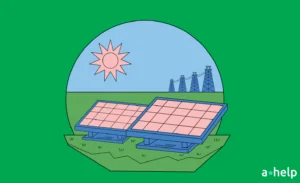
The Role of Renewable Energy in Combating Climate Change
< 1 min read
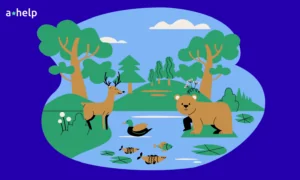
Climate Change and Its Effects on Local Ecosystems
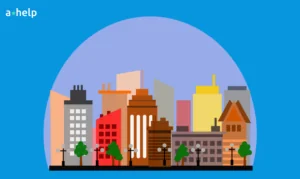
Is Sustainable Urban Planning Realistic?
Remember Me
What is your profession ? Student Teacher Writer Other
Forgotten Password?
Username or Email
- Write my thesis
- Thesis writers
- Buy thesis papers
- Bachelor thesis
- Master's thesis
- Thesis editing services
- Thesis proofreading services
- Buy a thesis online
- Write my dissertation
- Dissertation proposal help
- Pay for dissertation
- Custom dissertation
- Dissertation help online
- Buy dissertation online
- Cheap dissertation
- Dissertation editing services
- Write my research paper
- Buy research paper online
- Pay for research paper
- Research paper help
- Order research paper
- Custom research paper
- Cheap research paper
- Research papers for sale
- Thesis subjects
- How It Works
Global Warming Thesis Statement Topics & Guide On How To Write
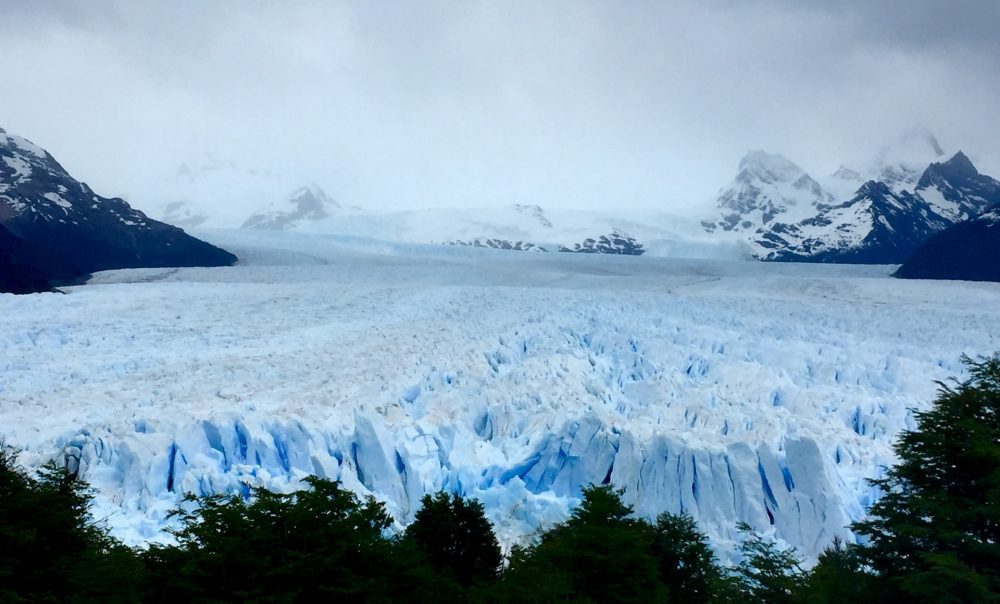
Global warming has increased globally over the last six years. With the melting of the ice rocks at the arctic and Antarctic poles, there is a need to worry. The frequent fires at the Amazon forest have also been witnessed in recent years. It is therefore impossible to miss a global warming thesis in light of all these developments.
What Is Global Warming?
It is a phenomenon of climate change characterized by a general increase in the earth’s average temperatures. These developments modify weather balances and ecosystems for a long time. Global warming continues to be the greatest challenge of the 21st century with the industrial and technological innovations taking place.
The impacts of global warming are adverse, and that is why it is a global pandemic.
How To Write a Thesis About Global Warming
A paper on global warming can be said to be one of the cheapest to write. The backing for this statement is the extensive research in this area. However, some students still have difficulties writing a climate change thesis.
So, what is a thesis statement for global warming?
It is found in the introduction section of the essay or research paper. A research paper has three parts:
- Introduction
Therefore, the thesis statement on global warming falls in the first section, and it expresses the main idea of your paper or essay. An impressive thesis statement for global warming has to meet the criteria highlighted below:
- It must be specific
- It should summarize what you intend to cover in your paper
- It should highlight the scope of your study
The global warming thesis statement research paper appears in the last line of your paper’s first paragraph.
What Constitutes A Strong Global Warming Thesis Statement?
When writing a thesis on climate change, interrogate the following questions:
Does it answer the question? – Helps you remain focused on the question Is my position on the topic debatable? – Are there opposing ideas to your thesis statement? Have I specified my stance well enough? – Does it address a specific issue? Does it pass the ‘so what’ question? – Ensure that it clarifies any penitent issue at hand Do I have enough evidence to back up my thesis statement? Does it answer the ‘how and why’ question?
Now that global warming is a large field with subsequent segments, ensure that you plan on what you specifically intend to cover beforehand. Your thesis statement will dictate the paper’s direction; therefore, make it as precise and manageable as possible.
Formula For Writing A Climate Change Thesis Statement
Most students prefer a template to have a good starting point for their thesis statement. Below are is a template you can use when thinking of writing a global warming thesis statement.
- “Global warming is a leading cause of health-related problems.”
From the example above, you can note that we have mentioned the issue at hand (global warming) and the paper’s direction (health effects of global warming). Since global warming affects many spheres of life, it is necessary to narrow down one in your thesis statement.
A climate change thesis will require you to identify a specific area of implication, which you will tackle in the rest of your paper. Narrowing it down will help you major in one area and prevent you from wandering about in your paper.
Expert Tips For A Global Warming Thesis Statement
On top of considering the format of your thesis statement, there are other critical considerations for a thesis statement on global warming:
- Position: It comes at the beginning of your essay paper. Its strategic position is in line with its purpose – to tell the reader what you will discuss.
- Length: Depending on the number of arguments you will cover, a thesis statement can either be long or short. In most cases, a thesis statement is one sentence long that is concise. The number of words is approximately 30 to 40 words long.
- Strength: Have an arguable statement for your thesis on climate change. It should not be apparent, or one that everyone agrees is true.
Below are global warming thesis statement ideas that you can find motivation from for your global warming thesis:
- Global warming is adversely affecting marine life, especially in the polar regions
- An analysis of climate change reveals one challenge facing Mother Nature: Depletion of natural resources
- High temperatures typically characterize global warming
- Global warming should be treated as a global pandemic to increase its awareness globally.
- To eradicate global warming, experts have to adhere to strict scientific ethics and principles.
Identify the purpose of your paper first (to persuade, inform, or argue) and then make it evident in the thesis statement .
Let us explore some global warming topics for the research paper:
Global Warming Research Paper Topics
- The role of UNEP is creating awareness and sensitization towards the adverse effects of global warming
- How industrialization is slowly depleting the ozone layer
- Increase in greenhouse gases: Are human activities the leading cause of the rising temperature levels?
- How exploitation of forests is leading to climate change
- The adverse effects of fossil fuels on climate change: A case study of gas, oil, and burning charcoal
Anti-Global Warming Thesis Topics
- How fungicides and pesticides are affecting the safety and portability of water
- The role of reliable waste management Programmes in reducing garbage levels
- Why the use of explosives in mining should be prohibited: An analysis of cyanide and mercury effects.
- Why stiffer penalties and fines should be imposed on offenders of climate change
- The need to create a multi-agency body specifically for monitoring the global warming situation and providing recommendations
You can consider the topics above to write on or further your research on global warming as a world pandemic.
By the way, we not only provide good topics for your research paper. We provide professional thesis writing help for those seeking a paper from scratch. All you need to do is click the ‘write my thesis’ tab and get your fully furnished paper in no time!
Leave a Reply Cancel reply
Global Warming Thesis Statement Ideas
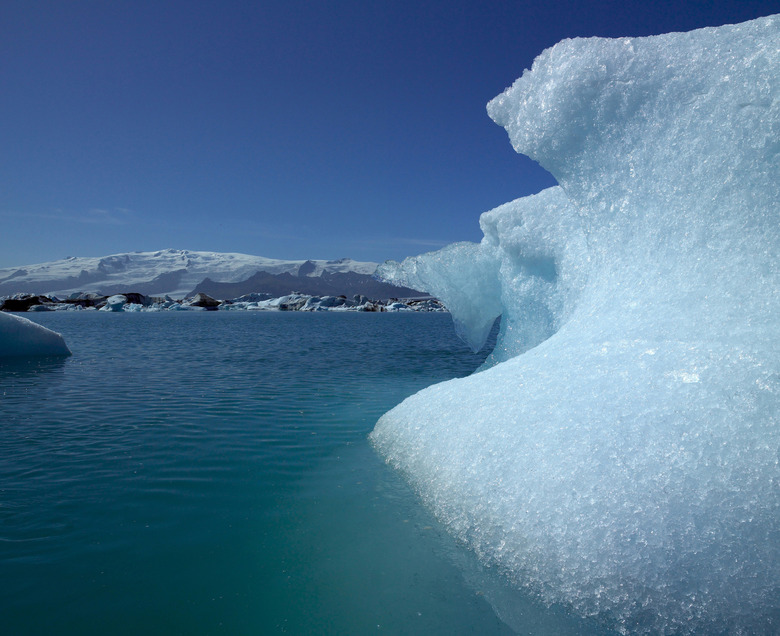
Global warming is a complex problem that often sparks policy debates. When writing about it, stick to the facts and make sure that your thesis statement — the central assertion of your essay — is supported by research. Some global warming topics have produced extensive research worldwide and can serve as topical guides in formulating your thesis statement.
Manmade Causes versus Natural Causes
The causes of global warming are complex, including natural and man-made emissions of carbon dioxide and methane. Use your thesis to highlight the difference between natural sources and man-made sources. For example, according to the Environmental Protection Agency, carbon dioxide concentrations in the atmosphere have risen from 280 parts per million in the 18th century to 390 parts per million in 2010. Human activities release more than 30 billion tons of carbon dioxide each year, or 135 times as much as volcanoes. Focus your thesis on this discrepancy, how man-made carbon dioxide sources such as fossil fuel consumption, have eclipsed natural sources of the gas.
Rising Temperatures and Declining Sea Ice
Your thesis statement may focus on the relationship between rising surface temperatures and declining sea ice, specifically ice in the Arctic. For instance, since 1901, sea surface temperatures have risen at an average rate of 0.13 degrees Fahrenheit per decade, with the highest rates of change occurring in the past three decades alone, according to the EPA.
Your thesis may establish the inverse relationship between these rising surface temperatures and the shrinking ice coverage in the Arctic. Arctic sea ice extent in December 2014, for instance, was the ninth lowest in the satellite record. The rate of decline for December ice alone is 3.4 percent per decade, according to the National Snow and Ice Data Center.

Effects of Melting Glaciers on Water Supply
Along with sea ice, many of the world's glaciers are melting due to climate change. Since the 1960s, the U.S. Geological Survey has tracked the mass of two glaciers in Alaska and one in Washington state, all three of which have shrunk considerably in the past 40 years.
Research other mountain ranges and compare the glaciological data. Use your thesis to answer the question of what melting glaciers will mean for populations dependent on the ice flows for their fresh water supply. For example, much of Peru's population depends on Andean glaciers not only for drinking water but for hydroelectricity.
Effects of Drought on Food Production
While global warming is projected to raise sea levels and flooding in coastal regions, it's also been credited for changes in weather patterns and extreme drought, according to the EPA. In the arid American Southwest, for example, average annual temperatures have increased about 1.5 degrees Fahrenheit over the past century, leading to decreased snowpack, extreme drought, wildfires and fierce competition for remaining water supplies.
As drought still rages in this region, your thesis can explore the relationship between global warming and agriculture, specifically in California's Central Valley, which provides produce for much of the country. It's possible that hotter, longer growing seasons are beneficial to California crops, but that shrinking water supplies threaten the viability of commercial agriculture.
Ocean Acidification and Global Seafood Stocks
Increased carbon dioxide emissions don't just impact our air quality. These emissions also result in increased acidity of our planet's oceans. An immense range of shellfish and other molluscs, such as clams, oysters, crabs, lobsters and more, face immediate population decline due to ocean acidification weakening their calcium carbonate shells.
Your thesis can explore the mechanics of ocean acidification as well as the potential economic impact to the fisheries that rely upon these marine animals for survival. You can also explore the potential ecosystem impact for the predators that feed upon these animals.
- U.S. Environmental Protection Agency: Causes of Climate Change
- U.S. Environmental Protection Agency: Climate Change Indicators in the United States
- National Snow and Ice Data Center: Artic Sea Ice News and Analysis
- U.S. Geological Survey: 3-Glacier Mass Balance Summary
- National Geographic: Signs from Earth: The Big Thaw
- U.S. Environmental Protection Agency: Climate Impacts in the Southwest
- Alaska Public Media: Ocean Acidification
Cite This Article
Neuffer, Scott. "Global Warming Thesis Statement Ideas" sciencing.com , https://www.sciencing.com/global-warming-thesis-statement-ideas-8567349/. 1 December 2021.
Neuffer, Scott. (2021, December 1). Global Warming Thesis Statement Ideas. sciencing.com . Retrieved from https://www.sciencing.com/global-warming-thesis-statement-ideas-8567349/
Neuffer, Scott. Global Warming Thesis Statement Ideas last modified August 30, 2022. https://www.sciencing.com/global-warming-thesis-statement-ideas-8567349/
Recommended
Argumentative Essay Writing
Argumentative Essay About Climate Change

Make Your Case: A Guide to Writing an Argumentative Essay on Climate Change
Published on: Mar 2, 2023
Last updated on: Oct 26, 2024
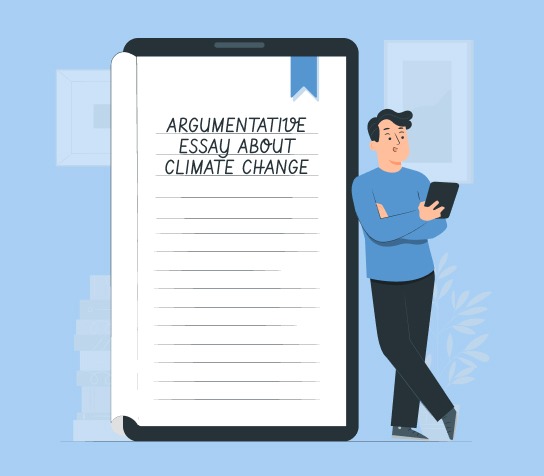
People also read
Argumentative Essay - A Complete Writing Guide
Learn How to Write an Argumentative Essay Outline
Best Argumentative Essay Examples for Your Help
Basic Types of Argument and How to Use Them?
250+ Argumentative Essay Topics For Your Next Paper
Essential Tips and Examples for Writing an Engaging Argumentative Essay about Abortion
Crafting a Winning Argumentative Essay on Social Media
Craft a Winning Argumentative Essay about Mental Health
Strategies for Writing a Winning Argumentative Essay about Technology
Crafting an Unbeatable Argumentative Essay About Gun Control
Win the Debate - Writing An Effective Argumentative Essay About Sports
Ready, Set, Argue: Craft a Convincing Argumentative Essay About Wearing Mask
Crafting a Powerful Argumentative Essay about Global Warming: A Step-by-Step Guide
Share this article
With the issue of climate change making headlines, it’s no surprise that this has become one of the most debated topics in recent years.
But what does it really take to craft an effective argumentative essay about climate change?
Writing an argumentative essay requires a student to thoroughly research and articulate their own opinion on a specific topic.
To write such an essay, you will need to be well-informed regarding global warming. By doing so, your arguments may stand firm backed by both evidence and logic.
In this blog, we will discuss some tips for crafting a factually reliable argumentative essay about climate change!
On This Page On This Page -->
What is an Argumentative Essay about Climate Change?
The main focus will be on trying to prove that global warming is caused by human activities. Your goal should be to convince your readers that human activity is causing climate change.
To achieve this, you will need to use a variety of research methods to collect data on the topic. You need to make an argument as to why climate change needs to be taken more seriously.
Argumentative Essay Outline about Climate Change
An argumentative essay about climate change requires a student to take an opinionated stance on the subject.
The outline of your paper should include the following sections:
Argumentative Essay About Climate Change Introduction
The first step is to introduce the topic and provide an overview of the main points you will cover in the essay.
This should include a brief description of what climate change is. Furthermore, it should include current research on how humans are contributing to global warming.
An example is:

Paper Due? Why Suffer? That's our Job!
Thesis Statement For Climate Change Argumentative Essay
The thesis statement should be a clear and concise description of your opinion on the topic. It should be established early in the essay and reiterated throughout.
For example, an argumentative essay about climate change could have a thesis statement such as:
Climate Change Argumentative Essay Conclusion
The conclusion should restate your thesis statement and summarize the main points of the essay.
It should also provide a call to action, encouraging readers to take steps toward addressing climate change.
For example,
How To Write An Argumentative Essay On Climate Change
Writing an argumentative essay about climate change requires a student to take an opinionated stance on the subject.
Following are the steps to follow for writing an argumentative essay about climate change
Do Your Research
The first step is researching the topic and collecting evidence to back up your argument.
You should look at scientific research, articles, and data on climate change as well as current policy solutions.
Pick A Catchy Title
Once you have gathered your evidence, it is time to pick a title for your essay. It should be specific and concise.
Outline Your Essay
After selecting a title, create an outline of the main points you will include in the essay.
This should include an introduction, body paragraphs that provide evidence for your argument, and a conclusion.
Compose Your Essay
Finally, begin writing your essay. Start with an introduction that provides a brief overview of the main points you will cover and includes your thesis statement.
Then move on to the body paragraphs, providing evidence to back up your argument.
Finally, conclude the essay by restating your thesis statement and summarizing the main points.
Proofread and Revise
Once you have finished writing the essay, it is important to proofread and revise your work.
Check for any spelling or grammatical errors, and make sure the argument is clear and logical.
Finally, consider having someone else read over the essay for a fresh perspective.
By following these steps, you can create an effective argumentative essay on climate change. Good luck!
Examples Of Argumentative Essays About Climate Change
Climate Change is real and happening right now. It is one of the most urgent environmental issues that we face today.
Argumentative essays about this topic can help raise awareness that we need to protect our planet.
Argumentative Essay About Climate Change And Global Warming
Persuasive Essay About Climate Change
Argumentative Essay About Climate Change In The Philippines
Argumentative Essay About Climate Change Caused By Humans
Geography Argumentative Essay About Climate Change
Check our extensive blog on argumentative essay examples to ace your next essay!
Good Argumentative Essay Topics About Climate Change
Choosing a great topic is essential to help your readers understand and engage with the issue.
Here are some suggestions:
- Should governments fund projects that will reduce the effects of climate change?
- Is it too late to stop global warming and climate change?
- Are international treaties effective in reducing carbon dioxide emissions?
- What are the economic implications of climate change?
- Should renewable energy be mandated as a priority over traditional fossil fuels?
- How can individuals help reduce their carbon footprint and fight climate change?
- Are regulations on industry enough to reduce global warming and climate change?
- Could geoengineering be used to mitigate climate change?
- What are the social and political effects of global warming and climate change?
- Should companies be held accountable for their contribution to climate change?
Check our comprehensive blog on argumentative essay topics to get more topic ideas!
We hope these topics and resources help you write a great argumentative essay about climate change.
Now that you know how to write an argumentative essay about climate change, it’s time to put your skills to the test.
Overwhelmed with assignments and thinking, "I wish someone could write me an essay "?
Our specialized writing service is here to turn that wish into reality. With a focus on quality, originality, and timely delivery, our team of professionals is committed to crafting essays that align perfectly with your academic goals.
And for those seeking an extra edge, our essay writer , an advanced AI tool, is ready to elevate your writing to new heights.
Frequently Asked Questions
What is a good introduction to climate change.
An introduction to a climate change essay can include a short description of why the topic is important and/or relevant.
It can also provide an overview of what will be discussed in the body of the essay.
The introduction should conclude with a clear, focused thesis statement that outlines the main argument in your essay.
What is a good thesis statement for climate change?
A good thesis statement for a climate change essay should state the main point or argument you will make in your essay.
You could argue that “The science behind climate change is irrefutable and must be addressed by governments, businesses, and individuals.”
Cathy A. (Medical school essay, Education)
For more than five years now, Cathy has been one of our most hardworking authors on the platform. With a Masters degree in mass communication, she knows the ins and outs of professional writing. Clients often leave her glowing reviews for being an amazing writer who takes her work very seriously.
Need Help With Your Essay?
Also get FREE title page, Turnitin report, unlimited revisions, and more!
Keep reading

50% OFF ON CUSTOM ESSAYS
Essay Services
- Argumentative Essay Service
- Descriptive Essay Service
- Persuasive Essay Service
- Narrative Essay Service
- Analytical Essay Service
- Expository Essay Service
- Comparison Essay Service
Writing Help
- Term Paper Writing Help
- Research Writing Help
- Thesis Help
- Dissertation Help
- Report Writing Help
- Speech Writing Help
- Assignment Help
Legal & Policies
- Privacy Policy
- Cookies Policy
- Terms of Use
- Refunds & Cancellations
- Our Writers
- Success Stories
- Our Guarantees
- Affiliate Program
- Referral Program
Disclaimer: All client orders are completed by our team of highly qualified human writers. The essays and papers provided by us are not to be used for submission but rather as learning models only.

IMAGES
COMMENTS
Sep 27, 2023 · Good Examples. Focused Approach: “This thesis will analyze the impact of climate change on the intensity and frequency of hurricanes, using data from the last three decades.” Lack of Focus: “Climate change affects weather patterns.” The good statement is specific, indicating a focus on hurricanes and providing a time frame.
effects of climate change and have led to intensified weather events and a steady rise in the average global temperature. Countries sought to outline an aggressive agenda for combatting climate change at the Conference of the Parties (COP 21) in Paris last year. In order to reach a
How exploitation of forests is leading to climate change; The adverse effects of fossil fuels on climate change: A case study of gas, oil, and burning charcoal; Anti-Global Warming Thesis Topics . How fungicides and pesticides are affecting the safety and portability of water; The role of reliable waste management Programmes in reducing garbage ...
their main interests. For example, if you are interested in human-caused climate change the history becomes a “process by connecting the dots among more than a thousand of the most 1 C. E. P. Brooks, Climate through the Ages - A Study of the Climatic Factors and Their Variations, (London, UK: Ernest Benn Limited, 1926), 430-2.
Dec 1, 2021 · Global warming has spurred a wide variety of research projects to better understand – and more importantly, attempt to combat or reverse – global climate change and its impacts on our planet. Many different causes of global warming exist and these can provide a valid basis for a thesis statement.
Mar 2, 2023 · Thesis Statement For Climate Change Argumentative Essay. The thesis statement should be a clear and concise description of your opinion on the topic. It should be established early in the essay and reiterated throughout. For example, an argumentative essay about climate change could have a thesis statement such as:
financial and technical support to overcome future climate change impacts. While important, traditional and local knowledge alone cannot make it more resilient and less vulnerable to future climate change. Keywords: climate change, Northern Pakistan, Ghanche, traditional and local knowledge, resilience, vulnerability, adaptive capacity Collection
Climate change is defined as a change in weather patterns. I am going to write about climate change and controversies surrounding it. Climate change is one of the most important topic which would be discussed around the world and would be important for a longer time to come. Political parties have different point of views about climate change.
climate change research. The question of how to address the impacts from climate change to development is a challenging and important area of theoretical and applied research. The aim of the four individual papers in the Ph.D. thesis is to address this aspect from different angles. The emphasis is on how climate change impacts will
climate change.2 Therefore, the concept of sustainable development can be used to limit the adverse effects of climate change on the enjoyment of human rights. Fourthly, the ability of many people to enjoy human rights is directly related to the ability of the relevant authorities